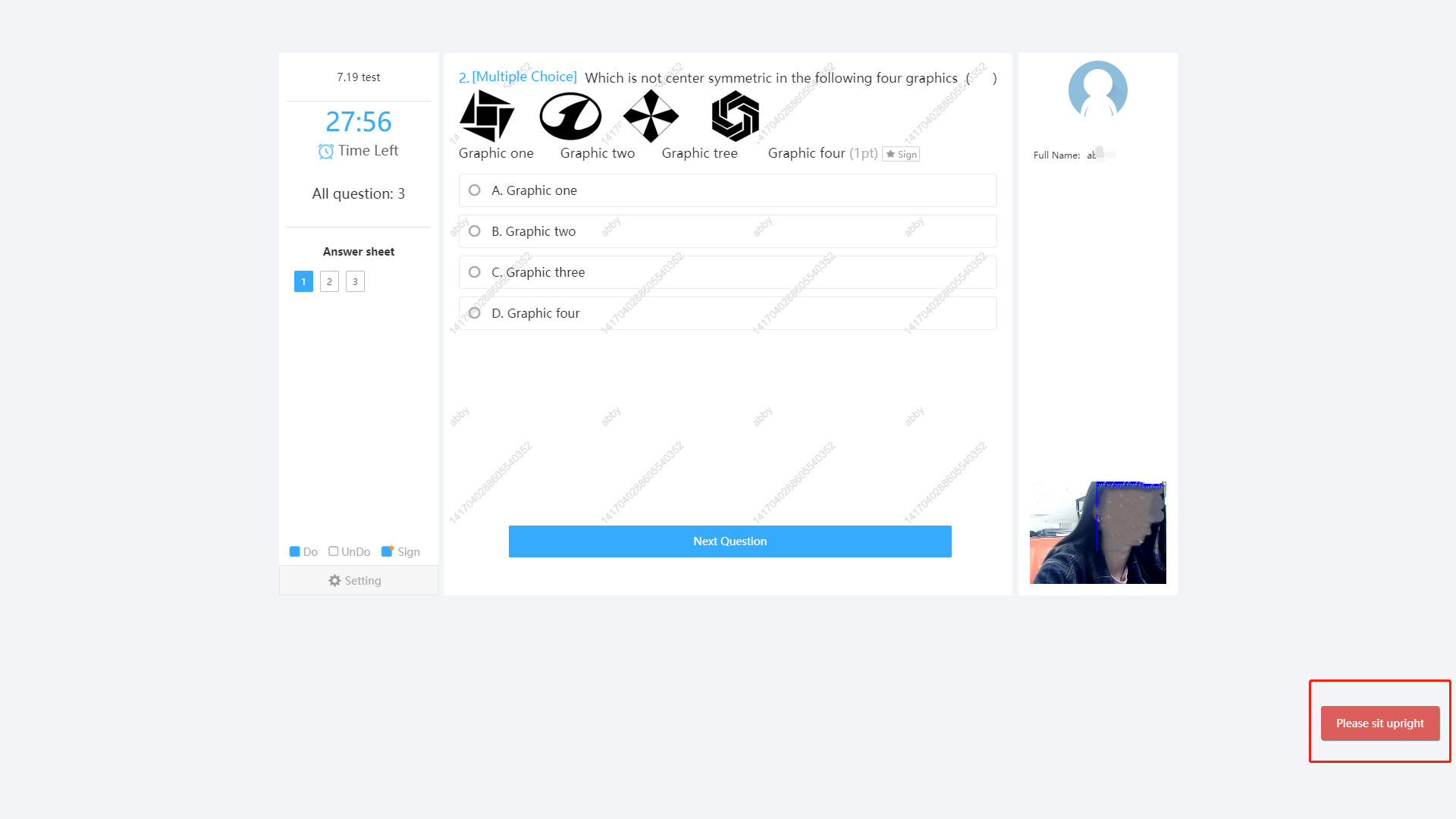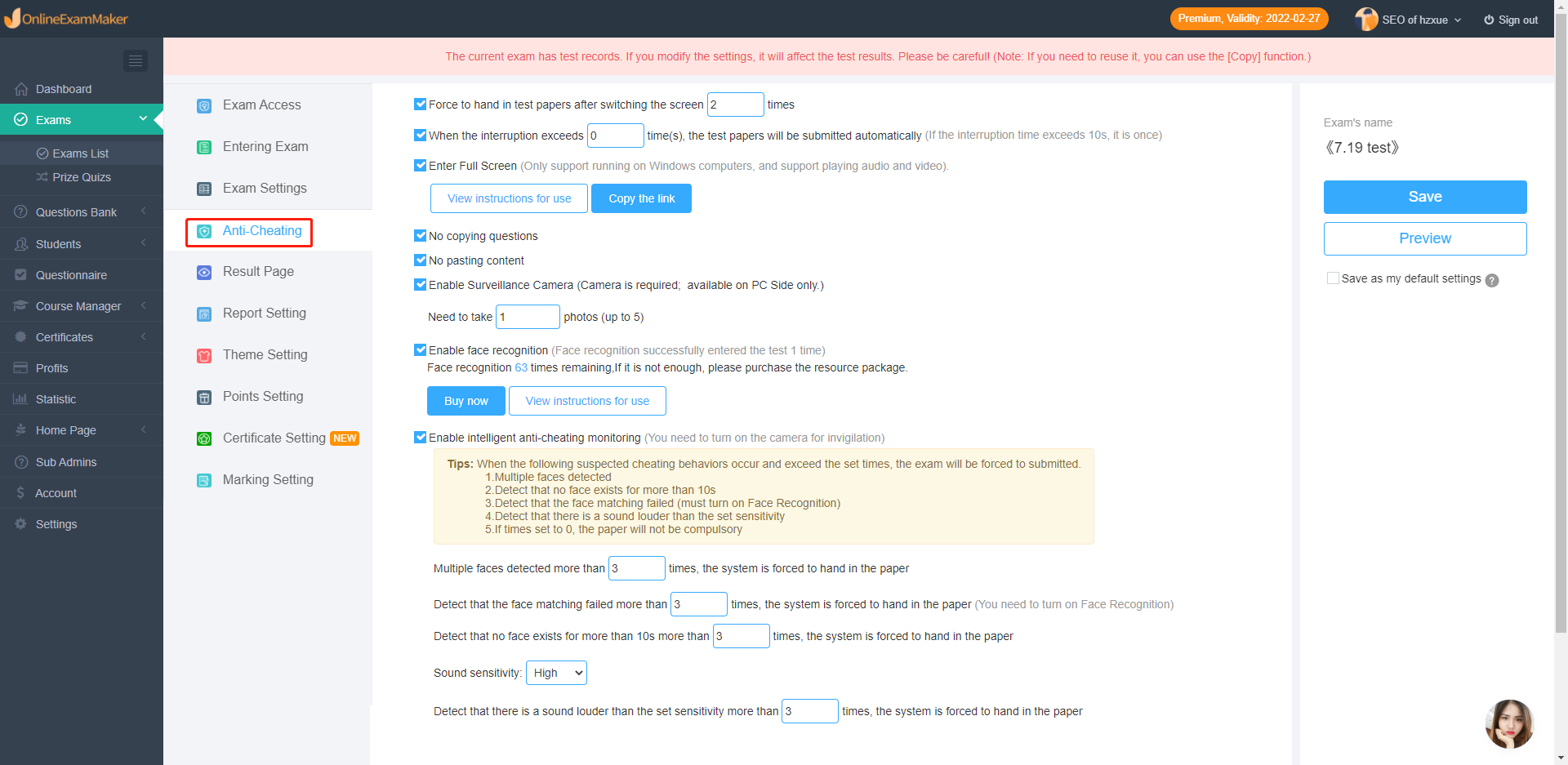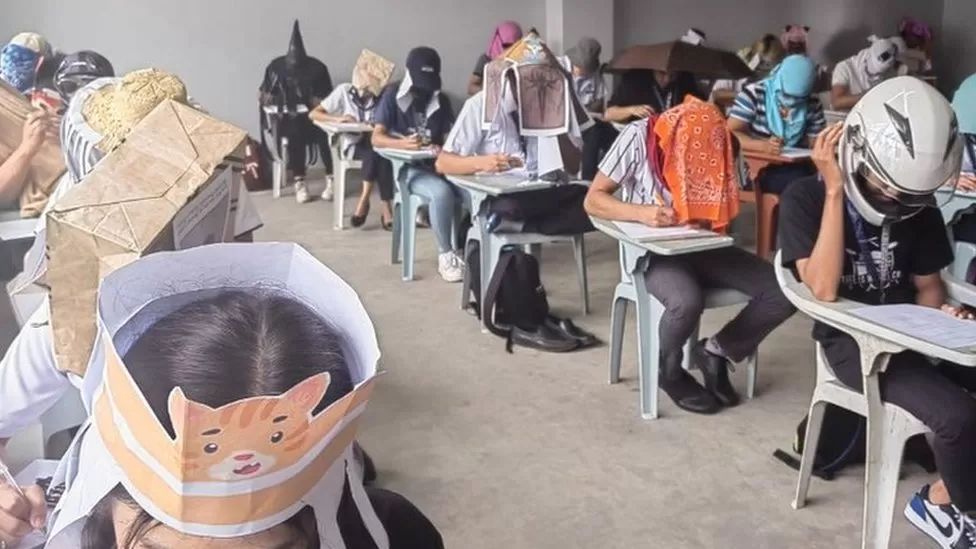Recently, a piece of news from the BBC sparked amusement. “Philippines: Student ‘anti-cheating’ exam hats go viral.” At a university in Legazpi City, Philippines, students are required to wear helmets to prevent peeking at other people’s answers. Many candidates use cardboard, egg cartons and other recycled materials to make anti-cheat devices.
As the most convenient way to assess people, examinations are indispensable in people’s study and work. In addition to the Philippines, other countries have different methods to prevent test-takers from cheating during exams.
South Korea
Network will be monitored to prevent candidates from cheating with phones. Each invigilator has a portable metal detector, and a radio wave detector will be installed in each exam room.
United Kingdom
They introduced sophisticated computer software, scanned candidates’ answer sheets, and judged plagiarism by the candidates’ wording and sentences. Electronic tags that emit radio waves are also added to the boxes containing the test papers, which are used to prevent the theft of test papers.
United States
Photo recognition and handwriting analysis techniques are used to verify the identity of candidates. For some exams, such as the SAT, candidates need to sign a “guarantee” when registering for the test, and any cheating will be prosecuted.
Australia
After the test is over, if the test taker is still answering the test after the invigilator reminds, the test of the subject will be judged to be zero.
Brazil
In Brazil, the supervision of the examination room is very strict. Teachers or others involved in cheating and financial transactions will be convicted of bribery, and students will be punished not to take exams for years to come.
From the above examples, it can be seen that each country has adopted different anti-cheating measures for exams. In the most of the exams, candidates are subject to anti-cheating measures. It is worth exploring why anti-cheating measures are needed in exams.
Why do we need anti-cheating?
Whether it is student entrance exams, knowledge contests, or employee assessments and recruitment in companies, exams are an indispensable method for examining people’s abilities. Regardless of whether it is an offline test or an online test, there are various ways for candidates to cheat. For example, hiring others to take the test on their behalf, carrying electronic communication equipment, consulting reference materials, etc., these behaviors will undermine the fairness of the test. The methods of cheating are endless. In order to ensure the fairness of the test, anti-cheating is essential and needs to be constantly updated.
What’s the trending of anti-cheating?
From the above examples, it is clear that offline examinations can be prevented without the input of technology. It is true for online exams, where virtual exams allow candidates to take exams online and prevent them from cheating can only rely on technology to do so online. Among the online test software on the market, it is commonly found the anti-cheating such as AI face recognition, intelligent detection, online proctoring and so on.

Intelligent detection in Online Exam Maker
How can we do better of preventing cheating?
Technology has led to a significant drop in cheating rates, and we need to know the common cheating methods used by test takers. The following tips will help you do better in this area (we are talking about online exams because it has only been used by more and more institutions in recent years, and it is more difficult to prevent cheating, so that it is more valuable to study their anti-cheating methods).
- Summarize the common cheating methods used by candidates.
- Selecting a cost-effective exam tool that meets your needs.
- Inform candidates the penalties for cheating in advance.
There are online real-time monitoring, intelligent anti-cheat detection (including sound detection, portrait detection, exam behavior detection), face recognition, screen lock, screen switching restrictions and other anti-cheat features in Online Exam Maker to meet users’ anti-cheat needs.

anti-cheating features in Online Exam Maker
Conclusion
Don’t forget to conduct more tests in order to make the candidates more familiar with the process of the exam. And it is better to summarize the cheating behavior that candidates like to use during exams.
